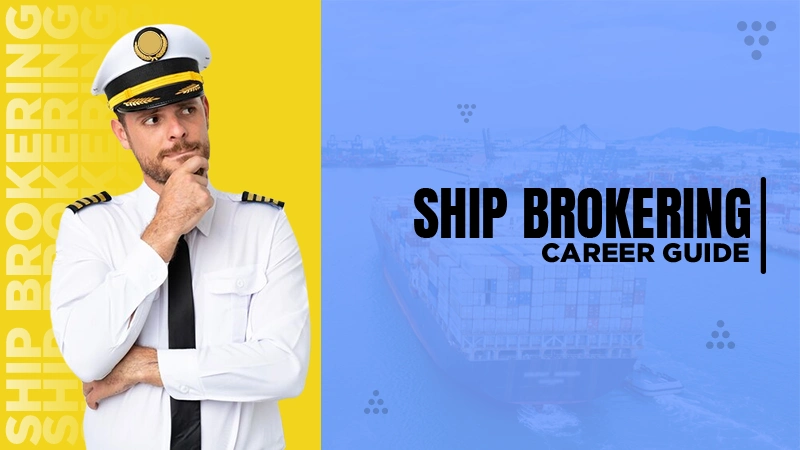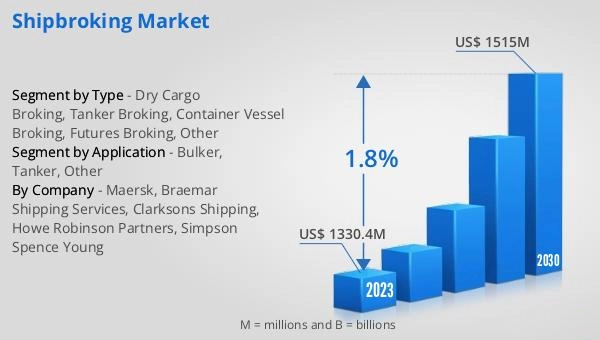
Maritime transport is by far the most cost-effective way to move the major goods around the globe. It is a significant part of the world’s economy, with almost 90% of the global trade happening through the sea.
And, this is right where a ship broker plays an indispensable role as an intermediary between the two major parties involved, the shipowners and the characters. And, because it involves a proper facilitation of buying and selling, it is often considered a lucrative career option with lots of opportunities to explore the world.
So, if you’re looking to craft a career out of maritime transport, shipbroker jobs are probably the first thing you should consider, and here’s your complete roadmap.

But First, Who Are Shipbrokers?
Shipbrokers are the middlemen between the shipowners and the cargo owners, who use ships to transport their goods and raw materials through the sea route. It means that the main duties of a shipbroker involve finding buyers for the ships and negotiating the terms of the sale to extract the major profit for the company.
They are often hired by shipping companies or shipbroking firms to finalize the contract on profit and facilitate the smooth transactions between both the parties involved. Shipbrokers assess the ships by examining their age, value, and overall condition to understand their true worth for the company. They further communicate those conditions to both parties involved to come to a fair agreement.

So, What’s The Whole Process of Becoming a Ship Broker?
Now that you have a complete overview of what the shipbroking job is all about. Let’s explore the steps involved in becoming one.
Eligibility Criteria to Become a Ship Broker
There are actually no clear-cut eligibility criteria to become a ship broker, as the whole process may vary depending on the company, region, and job requirements. However, there are still some characteristics and qualifications that one must acquire along the way, here look at some of them.
- The candidate must have to be above 18 years old to get into this field.
- There’s actually no specific degree required but having a little background in maritime studies, business, or logistics might help you understand this industry better.
- The candidate must have a deep understanding of how maritime transport works along with the knowledge of ships, handling of the cargo, and much more.
- One must have some appropriate sales and marketing skills to extract major profits from the agreements.
- And at last, candidates must possess good communication and negotiating skills to efficiently communicate the terms of an agreement.
Do You Know?
The World’s largest container ship has the capacity to carry over 21,000 TEU, which can hold up to 745 million bananas into ports across the globe.
Steps to Become a Successful Ship Broker
Here are the complete steps to have a breakthrough in the shipping industry:
Earn a Bachelor’s Degree
A bachelor’s degree in maritime law and international trade will help you gain hands-on skills and understand the financial principles of the shipping industry. However, it is not essential to have a related degree but still have a bachelor’s in maritime engineering or even business and financing will work out a major advantage to get along in the shipping industry.
Join a Shipping Company
To gain some hands-on skills and experience, a candidate must join a shipping company. This will help you understand how the whole system works within the industry. And, in addition to that, this will also help you understand the different aspects involved in the shipping. For instance, a proper calculation on how much goods can be transported within a ship or how to calculate the actual worth of the ship.
Pass the Institute of Chartered Shipbrokers (ICS) exams
If you want to become a shipbroker by profession, you’re required to pass a series of exams. This majorly involves passing three exams that are conducted by the Institute of Chartered Shipbrokers (ICS), which is a governing body of the industry. These exams include:
Fundamental Maritime Law (FML) Exam: This aims to test the knowledge of the candidate about the laws and regulations that facilitate shipping.
International Shipping Business Practice (ISBP) Exam: This exam works to understand how deeply a candidate is aware of international shipping practices.
And, The Company Law Part 1 (CL1) Exam: This tests the candidate’s knowledge of the company law.
Earn a Certificate of Competency (COC)
The COC certificate is again issued by the Institute of Chartered Shipbrokers. It is a must-have for anyone who wants to become a ship broker, as it clearly demonstrates that the holder has achieved some specific skills and knowledge involved when dealing with ships.
To Put It All Together
In closing, ship brokering is a rewarding career option with lots of bonus-earning potential. They often play a dynamic role in the maritime industry, thus it requires a range of skills such as communication and negotiating skills, technical understanding of the ship, and some fine analytical abilities to have a breakthrough in this field.